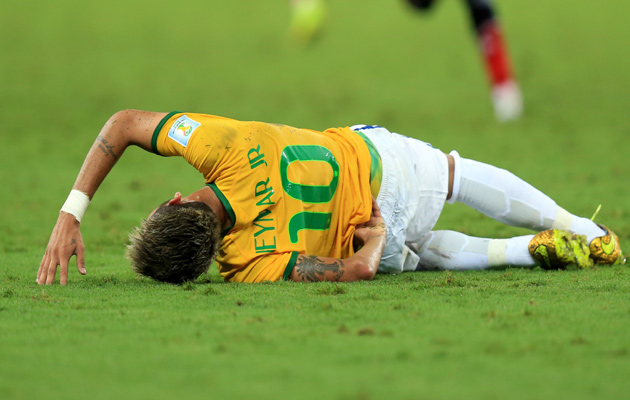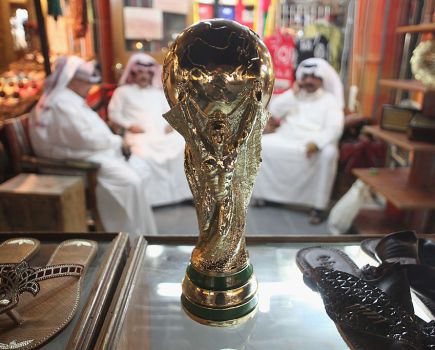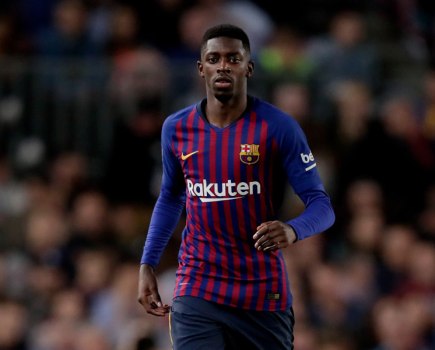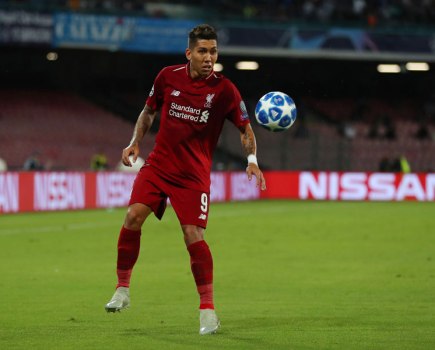The furore had erupted after poor officiating of Spain’s Carlos Velasco in Brazil’s World Cup quarter-final victory over Colombia which saw hosts’ superstar Neymar carried off with a serious back injury.
Velasco has been retained among the refereeing teams for the concluding stage of the finals. This inexplicable vote of confidence appeared almost to undermine the robust defence of FIFA’s refereeing strategy raised by communications director Walter Degregorio today.
The world federation’s hierarchy was upset by a report in Germany’s Bild Zeitung that referees had been told to keep yellow and red cards to a minimum to maintain the standards of drama which have revived the World Cup’s reputation as a footballing showcase.
Degregorio, unusually, appeared at the daily media briefing in Rio de Janeiro to respond just one day ahead of the German national team’s semi-final against Brazil here in Belo Horizonte.
He said: “There are some serious allegations [about] a plan from FIFA telling the referees not to sanction players with yellow and red cards in order to have more entertainment and better TV ratings – in other words that FIFA is risking and tolerating that players like Neymar and others are injured.
Degregorio, who always speaks with the full and personal authority of FIFA president Sepp Blatter, added: “You can question every decision of every referee. That’s part of the game and something we have to accept and the referees accept.
“What we cannot accept is to question the decision on an ethical level saying this is a hidden plan from FIFA. We can go through all 60 games and you will never find a referee who does not make mistakes. But to say he was asked to do this is the difference.”
Degregorio would not comment on the choice of ‘surviving’ referees which is bound to be controversial, beyond even Velasco’s retention.
His point was deny that a deliberate policy of card-lite refereeing had been ordered by referees’ committee chairman Jim Boyce or by referees director Massimo Busacca, himself a former FIFA match official.
Degregorio said: “There are reasons why some referees stay and some go. You can also question this. My point is that to say that behind this is a mastermind – that there is a plan to make the game more dynamic, more spectacular – this is something we cannot accept.”
FIFA had been jarred into rebuttal mode by the fact that the Bild report had been picked up by various media outlets in Brazil ahead of both an imminent disciplinary decision over Neymar’s assailant, Camilo Zuniga, and the semi-final.
Degregorio added: “The big deal is that it has been reported in a few newspapers even in Brazil and I am here [at the media briefing] because I think this is important.
“This goes to the core business because protecting the core actors, the players, is the most important thing we have to do at FIFA . . . The players are the main actors and if Neymar is not playing it’s not good for us too. We would love to see him playing so how can you say this is deliberately made by FIFA to improve the entertainment?
“To say there is a FIFA strategy behind this to allow entertainment to prevail is a very serious problem. I don’t say that you cannot question the decision of a referee. That is normal. The problem is to suggest there is something behind that.”
Conspiracy theories have been rampant during the World Cup and have been propounded by managers and media of various nations. Uruguay was one such example over the Luis Suarez biting case while Brazil has been a ‘conspiracy focus’ from both directions.
As Degregorio said: “In the beginning I read stories that FIFA was doing everything to bring Brazil to the final because it’s good for the World Cup and the atmosphere. Then, a couple of days later, I read there was a conspiracy against Brazil by keeping Neymar out.”







